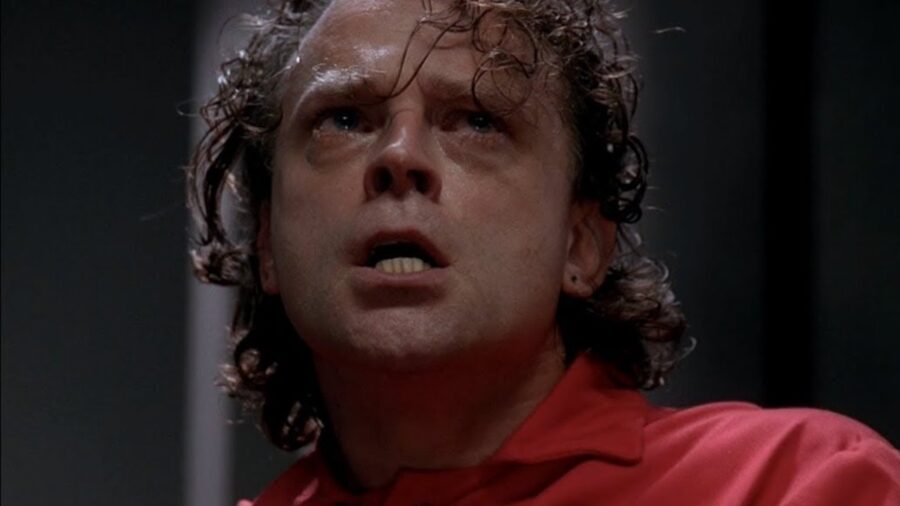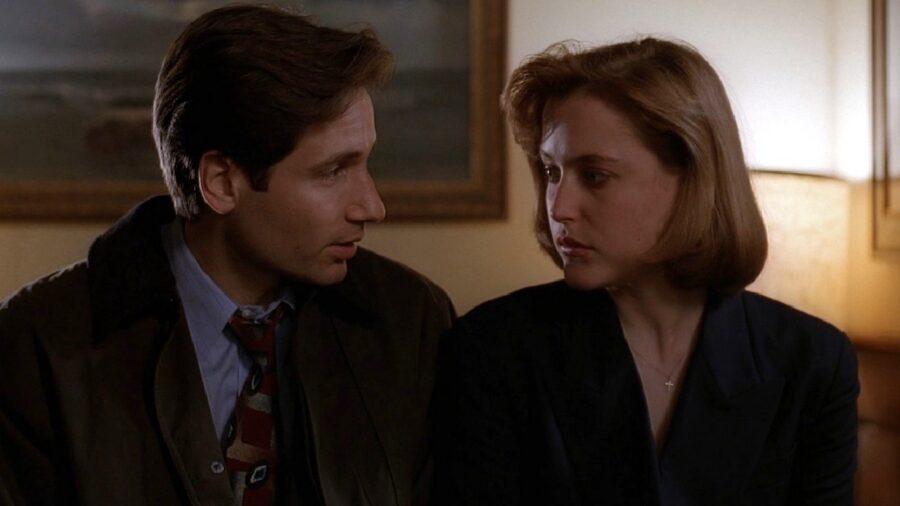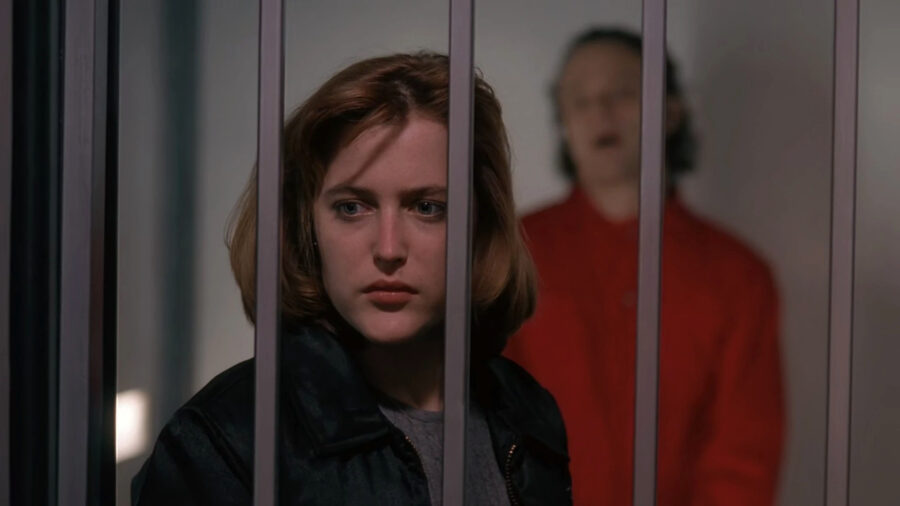The First X-Files Episode That Challenged Gillian Anderson

The X-Files was a real showcase for the acting talents of Gillian Anderson, whose skeptical agent Scully experienced a roller coaster of different emotions while working alongside Fox Mulder, a believer in all things paranormal. Interestingly, though, the earliest episodes didn’t really allow her to demonstrate what acting range she had, and the show’s writers decided to fix that with what is now considered a legendary episode. Regarding “Beyond the Sea,” Gillian Anderson recalls “that it was the first time I really had some real material to work with.”
“Beyond The Sea” Changes The Beats

While The X-Files was built on the strength of the chemistry between Mulder and Scully, the show’s early writers were concerned that they had Scully going through the motions too often. Mulder got to be the charismatic believer with a wacky sense of humor, but Scully was often stuck doing little more than playing a doubting Thomas character. Accordingly, “Beyond the Sea” writer Glen Morgan had a specific goal for Gillian Anderson in this episode: “We needed an episode where Scully came off as something besides a wet blanket … an episode where she believed.”
Fortunately, the episode’s writers weren’t the only ones enthused about “Beyond the Sea,” as Gillian Anderson later described her passion for this particular episode. “I remember sitting down with [Director] David Nutter,” she said, “and going through the different beats and the points and the emotional arc and wanting very much to get it right.” Speaking as fans, it’s not hard to see why she was so hyped about this episode as soon as she read the script.
Tables Are Turned By A Serial Killer

“Beyond the Sea” was specifically designed to turn the tables on the usual character paradigm for Gillian Anderson, forcing Scully to be more of a believer and Mulder to be more of a skeptic. Scully begins the episode experiencing the trauma of losing her father, but she doesn’t really have time to process her feelings because she and Mulder have to go speak with a notorious serial killer. The man is about to be executed and is offering to use his psychic visions to help out with a recent kidnapping, but because Mulder is the one who busted the murderer in the first place, he thinks these so-called powers are nothing but an attempt by the killer to avoid execution.
Rocking The Boat, But Only Temporarily

However, “Beyond the Sea” has a very different arc for Gillian Anderson’s Scully: she sees a vision of her dead father when they first interrogate the serial killer. This is enough to make her seek his help with the latest wrinkles in the kidnapping case, and after the advice proves fruitful, the murderer offers to help Scully speak with her father one last time. His offer is contingent on Scully attending his execution, but she declines that invitation, later confessing to Mulder that she thought the man was just manipulating her and that she already knew what her father would have said to her.
Turned Scully In A More Well-Rounded Character

As you can see, “Beyond the Sea” didn’t permanently change the Mulder/Scully dynamic so much as to temporarily change things up. However, it did have a more lasting effect on audiences who got to see the typically one-note Gillian Anderson portray grief, stoicism, belief, and skepticism in equal measure. She was finally a full character in her own right and not just someone for Mulder to bounce ideas off of before she shoots them down.
The Character Evolution That Elevated The Series

The writers also had another ulterior motive with “Beyond the Sea:” changing the then-prevalent audience perception that Scully was “uptight” and “b*tchy.” Fortunately, the tight script served to soften and humanize Gillian Anderson’s character even as it allowed her to really flex her acting chops. And future seasons would only dive deeper into her character, allowing her to be just as compelling (if not much more so) than David Duchovny’s popular Mulder character.











